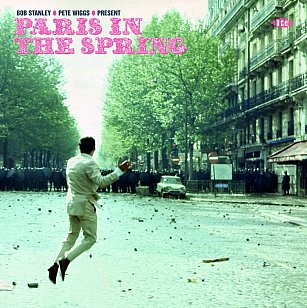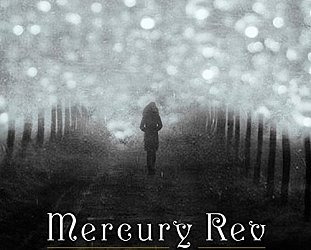Graham Reid | | 1 min read
Baleines, by Francoise de Roubaix

Half a century ago the streets of Paris were in a state of active revolution when what was initially a student protest about access to women's dorms by males turned into a protest about the university in general, the Sorbonne was occupied, police weighed in, workers sided with the students, there was a general nationwide strike and it looked like the government would be toppled.
The events threw up fascinating characters like the German-Jewish activist Danny Cohn-Bendit (aka Danny the Red) who wanted to settle for nothing les than the overthrow of the capitalist system in the West.
It was an astonishing year all round, but in France there was such deep seated and intellectual resentments that things were very serious indeed.
The poets, writers and of course musicians also weighed in and even prior to May '68 writers in the chanson tradition like Serge Gainsbourg had infiltrated the otherwise vacuous French pop of the Ye-Ye singers and such.
This 23-track collection is of soundtrack pieces, songs and that grumble-speak poetry of Bernard Lavilliers, Gainsbourg's collaborator Jean-Claude Vannier (an alternate take of the psyche-rock orchestration of Les gardes volent au secours do roi from his classic album L'enfant assassin de mouches), Francoise Hardy, the graphic designer-cum-mystery girl Leonie with two sensual pieces and of course Gainsbourg, and Jane Birkin all from that remarkable year.
There is the requisite helping of languid world weariness by some of the female singers (notably Brigitte Fontaine with the orchestrated Dommage que tu sois mort/Too Bad You're Dead) and very little of it is overtly raging as you might expect . . . in fact Looking For You (in English) is a sensual, string drenched piece by Nino Ferrer with the American model/soft-porn actress Radiah Frye.
There are light ballads and proto-prog also, often with ear-engaging sonic constructions.
In fact if you can't follow the French idioms it is going to be the remarkable arrangements here which will keep your attention, they are often – as on Hardy's Viens where dramatic acoustic guitar sits uneasily with stabbing strings – quite extraordinary.
So the unease in these tracks -- all well annotated in the booklet -- usually comes courtesy of the music rather than from any evocation of street riots outside the window.
But the guy on the cover isn't dancing with delight on a warm spring day in the City of Lights, he is throwing a rock at that line of police.
For more contemporary French artists you might like to look at these compilations.





post a comment